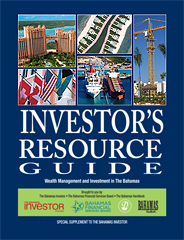|
Published: Date: Updated: |
Investor Resources January 16, 2013 January 16, 2013 |
A foundation is a distinct legal entity registered under the Foundations Act 2004. Once registered, a foundation is deemed to be resident and domiciled in The Bahamas. Foundations may be established for private, commercial or charitable purposes provided same are lawful and include the management of its assets. Foundations are created by the will of the founder or by the founder executing a charter which may, but need not, be filed in the registry of foundations.
Foundations may be used for most purposes for which trusts and companies are presently used: estate planning, tax planning, preserving family wealth, segregating assets, perpetuating corporate governance philosophy, subordinating debts, separating voting and economic benefits, investing in private companies with a poor economic performance, owning private trust companies and establishing charities. Foundations may also be used where anti-forced heirship and creditor protection are important.
Features
- The founder of the foundation may be a natural or legal person and a nominee founder may be used.
- A foundation must appoint either or both a secretary or foundation agent to conduct the necessary due diligence, provide the registered office, undertake duties relating to anti-money laundering and counter-terrorism regulations and ensure that the foundation complies with statutory requirements. The secretary or foundation agent must either be a licensed trust company under the Banks and Trust Companies Regulation Act or a duly licensed financial and corporate service provider under the Financial and Corporate Services Providers Act. If a foundation has a foundation agent and a secretary, but the latter does not perform any of the statutory duties, such a secretary need not be a licensed financial and corporate service provider or trust company.
- Where there are no officers appointed, the foundation charter shall provide for the appointment of a foundation council, which may consist of:
- two more natural persons
- a legal person and one or more natural persons, or
- a legal person by itself.
- The foundation council’s members need not be located in The Bahamas and its functions include:
- ensuring that the foundation and the officers comply with the charter and articles and
- supervising the officers and their management of the foundation.
- The Council is entitled to:
- access to the books and records of the foundation
- be informed of all meetings of the officers
- attend and be heard but not vote at such meetings
- be included in the circulation of foundation documents and
- be informed of any delegation of powers to an officer.
- Fiduciary and other responsibilities are usually vested in a foundation council or similar governing body and the foundation may also have a protector or committee of protectors.
- Charter may reserve powers to the founder, including the power to amend or revoke same.
- Charter may appoint other officers in addition to the secretary, whose duties will be mainly administrative.
- Charter may include terrorem provisions.
- The procedures for appointing beneficiaries may be included in the charter rather than the names of the beneficiaries.
- A beneficiary with a vested interest in the assets of the foundation has the right to be notified of interests, request the charter, articles, any audit report, and any minutes of any meeting of the officers of the council or other supervisory body.
- A beneficiary has the right to confidentiality and the officers of the foundation council shall take all reasonable steps to secure such confidentiality.
- Due diligence in respect of founder and beneficiaries required, but confidentiality with regard to foundation information must be maintained.
- Foundations are exempt from Bahamian taxes and business license fees, stamp duties (excepting Bahamian real estate taxes) and exchange controls.
- Foundations may redomicile to or from The Bahamas.
- Articles are optional. If no articles, the Act applies.
- A foundation need only keep such financial statement accounts and records as the officers consider necessary or desirable to reflect the financial position of the foundation.
- Foundations may be established for a fixed or indefinite period. Foundations may be formally liquidated or revoked.
- Instruments of disposition may include restrictions against alienation.
Registration formalities
- Registration statement contains name of foundation, date of charter, purposes and objects, date of articles (if any), details of founder (could be nominee), secretary and foundation council or other governing body or supervisory person, address of registered office, period for which established and value of initial assets.
- Only additional filing required is statement containing particulars of any amendments to initial registration statement.
- Foundations must have initial assets of $10,000 which must be maintained. (Assets of a foundation need not be transferred until after registration although there will be a commitment in the charter by the founder to transfer the assets).
- Foundations must have registered office and secretary or foundation agent in The Bahamas.
Fees per calendar year
• $500 if registered in 1st quarter
• $375 if registered in 2nd quarter
• $250 if registered in the 3rd quarter
• $125 if registered in the 4th quarter
• Annual fee $500









